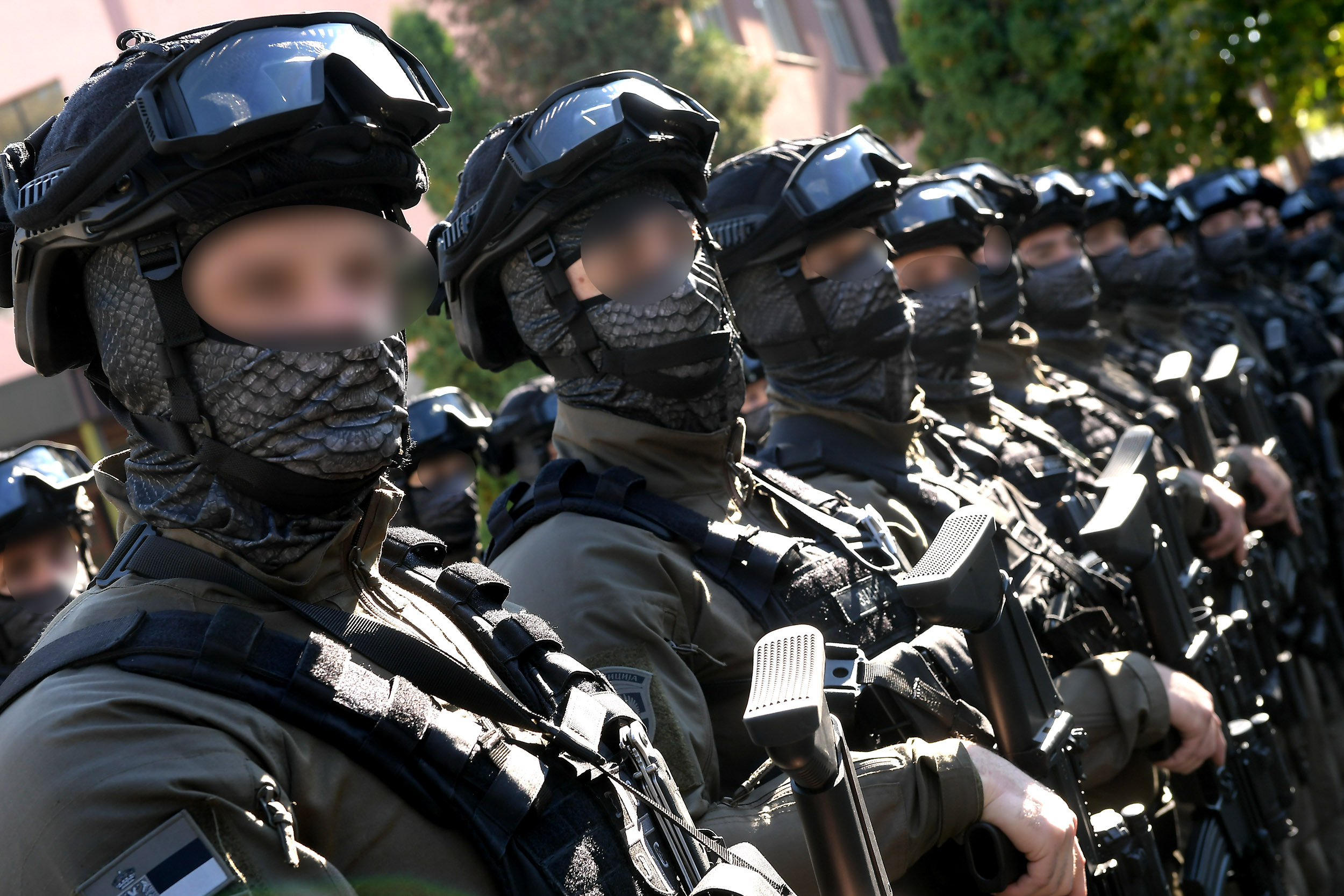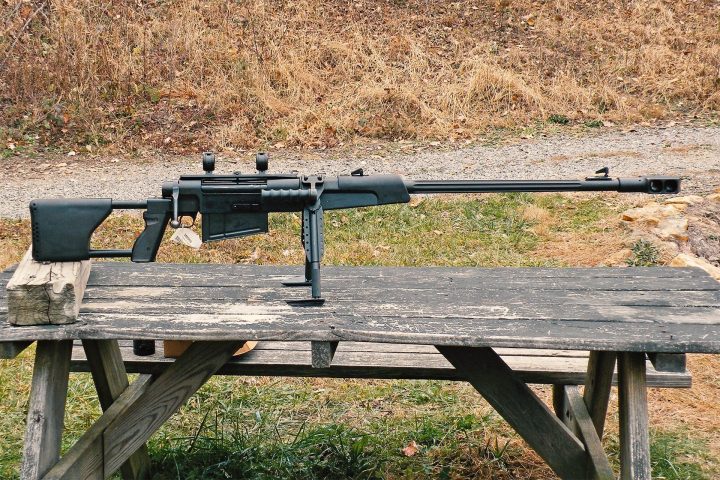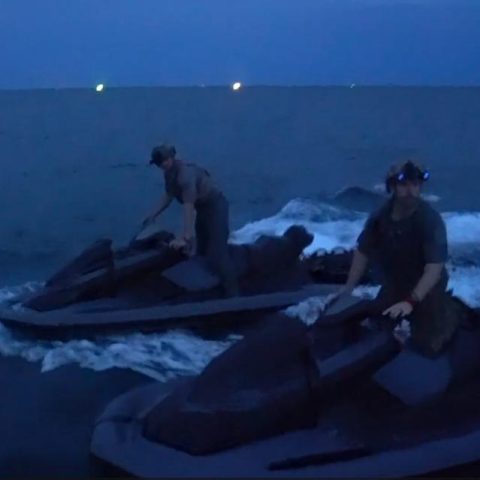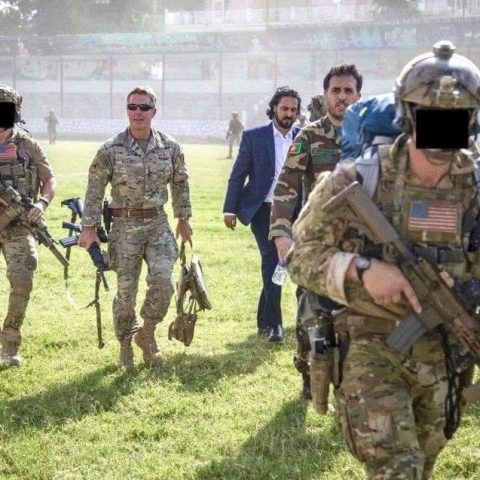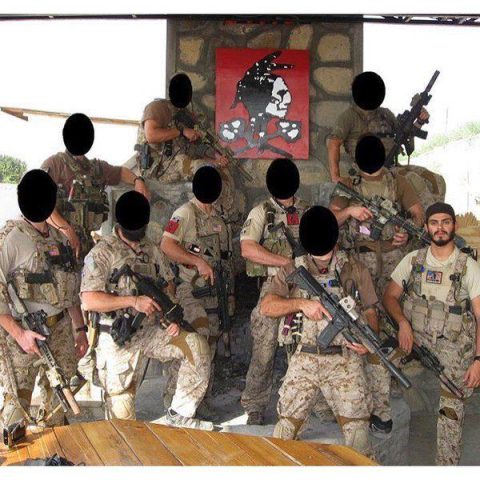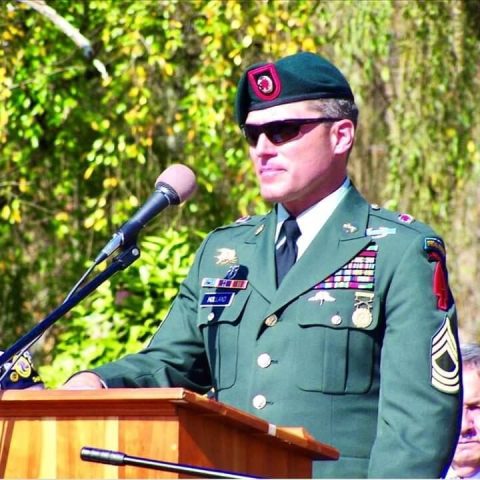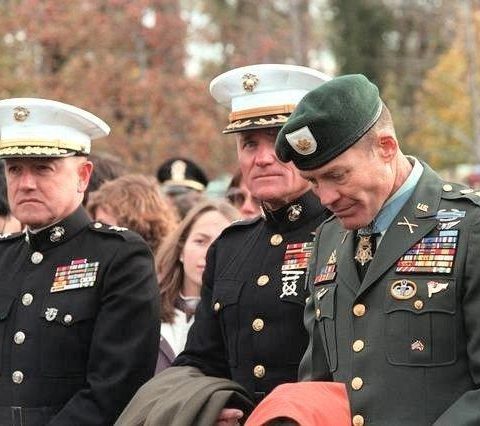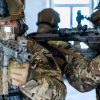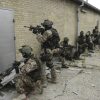The Military Police Detachment for Special Purposes KOBRE is a specialized unit that operates under the direct authority of the Chief of the Serbian Armed Forces General Staff. Its primary mission is to protect select individuals and facilities of critical significance. At the helm of this elite unit is Lieutenant Colonel Goran Colic, who serves as the Commander of the Military Police Detachment for Special Purposes KOBRE.
Introduction
This elite military special unit boasts a long and storied tradition with exceptional professional achievements. Its members are renowned for their professionalism, military honor, and dedication to duty, making it a source of pride not only for the Serbian Armed Forces but also for the citizens of the Republic of Serbia.
To carry out this vital task, the Military Police Detachment for Special Purposes KOBRE (eng. Cobras) comprises three essential components: the Headquarters, Command Platoon, and military police Companies. Each element is crucial in ensuring the unit’s success in protecting those under its care.
History
In the early 1970s, the world faced the emergence of new security threats on a global scale. These threats were characterized by their specificity in preparation and application and the training and organization of their direct perpetrators. As a result, changes in national security organizations and increased supranational cooperation were necessary. The events around Bugojno, located in the current Central Bosnia Canton of the Federation of Bosnia and Herzegovina, along with the military-police operation in the Raduša Mountain during 1972, revealed weaknesses in the existing security systems. To address this issue, the former federal management initiated the organization of smaller, specialized formations that were trained and equipped under special standards. Such formations were designed to react effectively to complex security threats in all conditions, representing significant factors for the republics and the entire former federation systems.
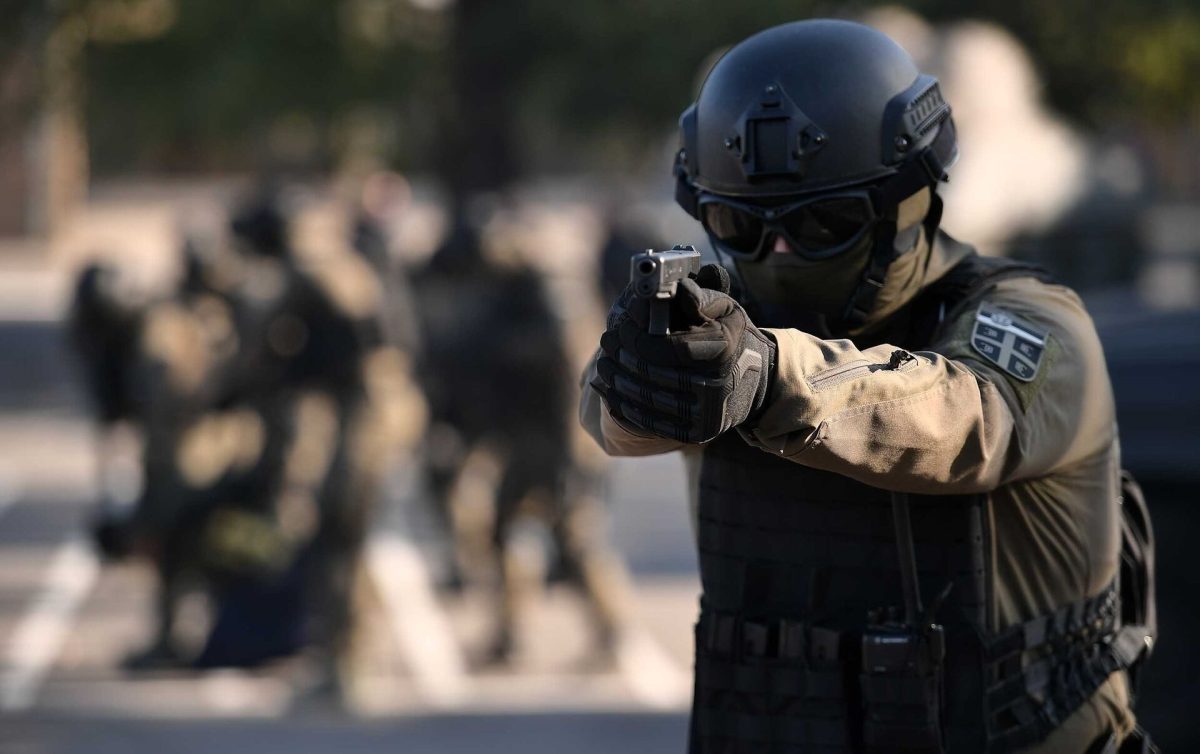
One of the earliest units of this type in former Yugoslavia was established in Belgrade on April 14, 1978, within the armed forces of the former state. The Military Police Counter Terrorist Department was established under the order of the State Defense Secretary, within the 282nd Military Police Battalion of the YPA (Yugoslav People`s Army), under the Chief of the General Staff. At its inception, the department had 12 operators chosen according to special criteria the State Defense Secretary outlined.
By 1985, the Counter Terrorist Department had increased and was reorganized as the Counter Terrorist Platoon, which was responsible to the then Guards Brigade command. With this personnel increase, the platoon expanded its operational capacity. It became capable of effectively executing tasks beyond counter-terrorist actions, such as VIP and high-value infrastructure protection, as well as other military-security tasks.
As conflicts escalated in former Yugoslavia, the unit was immediately deployed in combat actions. The disintegration of former Yugoslavia led to changes in the unit, which was then placed under the former Corps of Special Units, continuing to carry out combat tasks. The unit gained a reputation for its reliability in executing combat tasks, while its exceptional combat experience became significant in training younger generations of Serbian KOBRE.
In 2000, the unit was organized as a counter-terrorist detachment, answering directly to the Chief of the General Staff of the then Yugoslav Army. Over the following years, the detachment increased in size, and Colonel Stojan Kljajić had significant credits for the unit’s development during this period. He was in charge of commanding duties until 2005. During this time, a new insignia was adopted for the unit: a winged cobra wrapped around a sword.
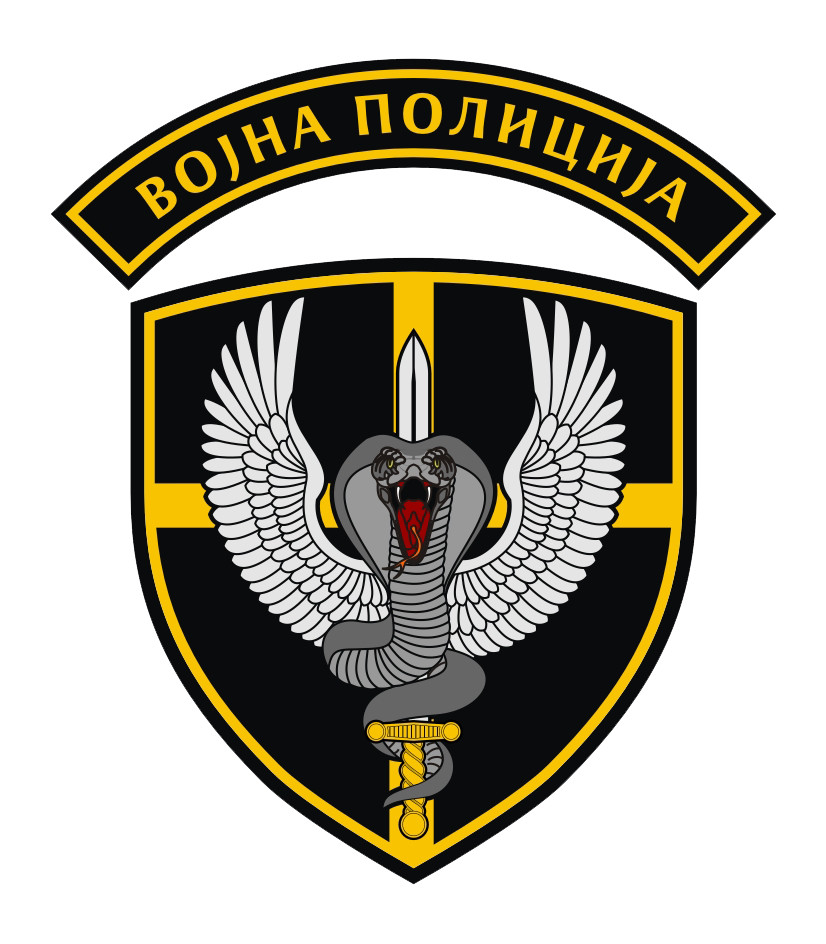
This symbol became a prestige icon among Serbian soldiers. The unit continued as a counter-terrorist detachment until 2006 and was then reorganized as the Military Police Special Operations Battalion KOBRE until the end of 2020. Following tradition, it was once again placed as a detachment directly under the Chief of the Serbian Armed Forces General Staff. These changes improved the unit’s response time and simplified the chain of command.
Mission
The Military Police Special Operation Detachment KOBRE is currently under the direct authority of the Chief of the General Staff of the Serbian Armed Forces, with professional ties to the Military Police Directorate. Its primary objective is to ensure the necessary operational capabilities and forces are available to complete missions. Specifically, the KOBRE performs various tasks related to protecting VIPs, fighting terrorism in various conditions, safeguarding critical infrastructure, and securing vital assets such as documents, equipment, and weaponry. These tasks are defined under Article 53 of the Law on Serbian Armed Forces.
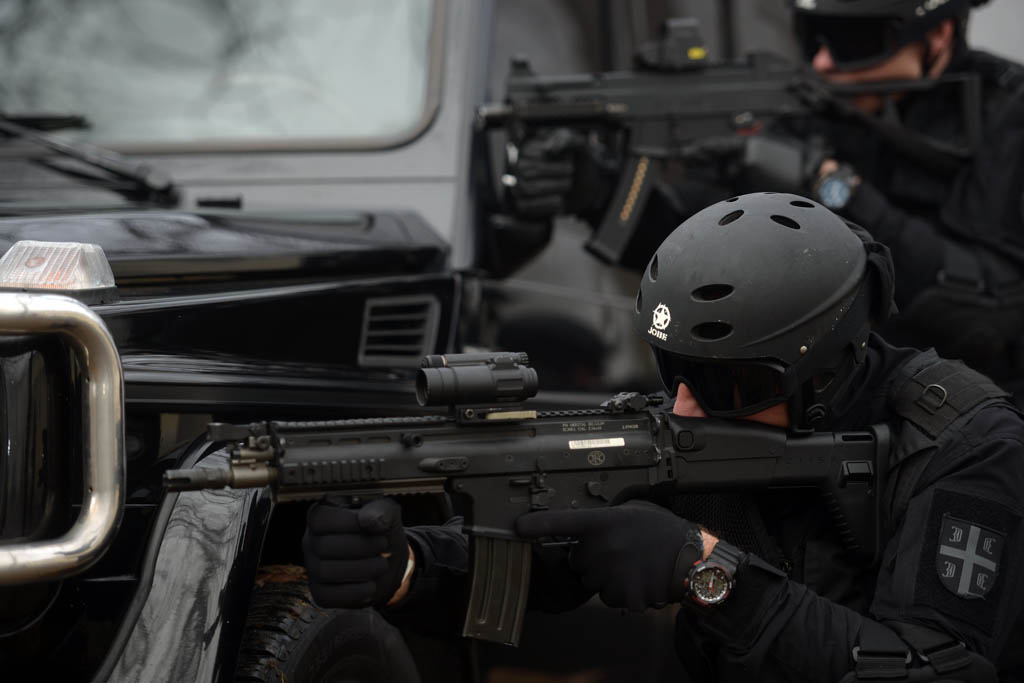
The KOBRE unit is headquartered at the Vasa Čarapić barracks in Banjica, Belgrade. It is commemorated annually on April 14 as the oldest military counter-terrorist unit, dating back to the foundation of the Counter-Terrorist Department. Currently, the unit is led by Lieutenant Colonel Goran Colić, succeeding Lieutenant Colonel Vladimir Ušljebrka and Lieutenant Colonel Viktor Dobrić. Over the years, the KOBRE has performed its duties in more than fifty countries, including Russia, Iraq, Turkey, Nigeria, China, Qatar, Canada, and the United States. They have also participated in peacekeeping missions in Cyprus, Lebanon, and Somalia.
They have received numerous accolades for their professional execution of tasks, including medals from the highest state and military officials. The unit has been decorated multiple times by the President of the Republic of Serbia, who also serves as the commander of the Serbian Armed Forces. The KOBRE unit was awarded the Medal of Knight’s Sword of III Degree in 2002 and the Golden Medal for Exceptional Credits in Defense and Security in early 2015.
Organization
The KOBRE is a specialized unit comprising handpicked, professional Serbian Armed Forces personnel. The unit’s admission process is rigorous, and candidates are selected at various levels designed to match the unit’s requirements and tasks.
The present organization of the Military Police Special Operations Detachment KOBRE consists of a commanding element and sub-elements that include the Counter-Diversion Protection Team, the K9 Team, the Communication Department, and the Technical Maintenance Platoon. The Counter-Diversion Protection Team safeguards the central base of the unit, including service vehicles, paper and electronic documents, postal envelopes, and packages. It conducts field inspections as part of its duties. The Instructor Group comprises the most experienced KOBRE operators who plan and perform regular and specialist training of the operating personnel, selecting candidates and training rookies.
Operating companies are assigned tasks and jobs, and specialists within each company undergo training. One company is responsible for counter-terrorism actions and is staffed with younger operators who have completed basic and advanced counter-terrorism training and sniper specialist training courses. Other companies are tasked with VIP close protection and high-value facilities protection and are typically filled with close protection specialists assigned by senior officers. Each operating company comprises 50-60 operators and is divided into operating platoons, each with 3-4 tactical teams. To ensure the unit’s readiness, the operator training curriculum is designed to allow for cross-functional participation so that any team can assist in executing other companies’ tasks.
The Serbian Armed Forces Guards Brigade Logistic Battalion handles the unit’s logistics, ensuring that the Military Police Special Operation Detachment KOBRE is fully equipped and prepared for any operation. In recent years, the unit has welcomed several highly skilled female operators who bring their diverse specialties and capabilities to the Team.
Training
The admission process for the elite KOBRE counter-terrorist unit of the Serbian Armed Forces is rigorous and competitive. The admission requirements are general and specific, encompassing age limits, impeccable records, high academic achievements, and successful health and psychological examinations. A security clearance is also a crucial component of the process.
Once the initial screening is complete, candidates who meet the criteria are selected to undergo three weeks of intense, selective training that includes rigorous physical and psychological challenges. The final admission decision is made by a team of experts who assess the candidates based on their performance during this training.
The decision to open a job vacancy at the detachment is made by the command of the unit based on the ongoing systematization and the unit’s needs. Before the selection process begins, the job opening is published to allow interested candidates time to submit the necessary documents. Only professional personnel of the Serbian Armed Forces are eligible to apply, and the application process is voluntary.
The pre-selection process begins with a thorough background check of each candidate and a mandatory medical examination conducted at the Military Medical Academy at Banjica in Belgrade. These tests assess blood pressure, heart rate, lung capacity, eyesight, hearing, and other relevant health factors. Candidates who receive positive evaluations from specialist doctors are then dispatched to the selection training.
The competition to join the KOBRE is fierce, as the unit demands only the best individuals to don their black berets and insignias. Candidates who complete the initial screening undergo a month-long drill that tests their physical strength, endurance, and stamina. This drill is designed to push candidates to their limits and to prompt them to reflect on their motivations for applying.
In addition to strength exercises, the Serbian KOBRE drill involves long full-gear marches through rough terrain, which have become a symbol of their training. Many operators earn lifelong memories, including scars on their feet. Those mentally strong enough to endure the hardships imposed by the instructors will acquire an enviable level of physical fitness, which is crucial for success in the upcoming selection phases.
Upon completing the drill, the remaining candidates undergo a basic training program, an elimination-type process conducted at several locations throughout the country. During the first three months, candidates focus on improving their physical fitness with close combat practice that includes various martial arts such as karate, boxing, kickboxing, aikido, and ground techniques. Self-defense training is also essential to the program, including bare-handed techniques, cold arms and firearm self-defense, and other tools such as military shovels, axes, and batons. The experienced instructor, Dušan Jakovljević, leads this part of the training, setting standards and instilling respect in younger candidates through his physical fitness and extensive experience.
In conjunction with range shooting, intensive firearm training is conducted during the basic training program, including courses on handgun use, submachine guns, and automatic rifles. Special attention is given to safe firearm handling and carrying, especially after cocking a firearm. Candidates first practice precision shooting techniques before mastering combat techniques using domestic and foreign firearms. Certain parts of the firearm training take place at the General Jovan Mišković barracks, the Rastko Nemanjić barracks in Pančevo, and the Peskovi military range. Climbing training, the use of military-technical systems, and parts of expert military-police training are also included in this training phase.
The first three months of the basic training program are designed to develop individual knowledge and skills. The results of each candidate’s tests are closely monitored and noted, and they have a decisive impact on their capabilities evaluation, which determines their future status.
The remaining candidates complete most of the tests in groups in the next six months. These tests are carefully designed by generations of Cobra instructors and are often only possible to complete successfully through teamwork. In this phase, candidates study tactics, the basics of special operations and quick reaction tactics in all conditions, close-quarters battle, hostage crises and their resolution in facilities or hijacked means of transportation, elements of VIP and facility close protection, and more.
Upon completing the six-month training, the instructors evaluate each candidate’s achieved results, including their behavior in extremely stressful situations, their determination, desire, and capability to be a leader and respect authorities. If a candidate meets the high standards of the KOBRE, they are assigned to the unit for fixed-term employment but can be demoted to their genuine unit at any moment. During this employment period, candidates continue their training and are self-proving. If they meet the standards during the trial, they are rewarded with a permanent contract at the Military Police Special Operations Detachment KOBRE and can proudly wear the prestigious insignia.
The Military Police Special Operations Detachment KOBRE ensures that their operators’ training is ongoing, including specialist training and professional development. The KOBRE consider parachuting and diving training essential, with many of their operators having completed basic training in these areas throughout their careers. Basic parachuting training is carried out with the 63rd Parachute Brigade operators in Niš, while basic diving training is completed at the 82nd Naval Sabotage Center.
Winter training is conducted at Kopaonik, where operators are trained in physical fitness, survival techniques in winter conditions, skiing, and first aid training, among other things.
Since a significant portion of tasks entrusted to the detachment involves VIP and facility close protection, companies’ operators complete expert courses in this field, domestically and abroad. Operators must meet demanding VIP and facilities close protection courses to attain the rank of retainer. Professional expertise within the field also includes speed driving courses, regularly organized at the Kovin Airport near Smederevo. Deployment within the companies depends on operators’ preferences and officers’ evaluations.
The high standards and proper training at the Military Police Special Operation Detachment KOBRE are evidenced by the climbing specialists’ participation in conquering Mount Everest in 2000. The KOBRE regularly participates and achieves top results in numerous sports competitions, including orienteering, martial arts, and athletics. In February 2020, the KOBRE Team placed 17th in the final standings of the prestigious Dubai SWAT Challenge 2020 international competition.
In February 2003, unit operators founded the practical shooting club IPSC KOBRE and have been successfully competing in this sport.
Gear
To properly equip a unit of this type, it is essential to understand its defined purpose and ongoing security needs, influenced by politics at various levels. The detachment is equipped with modern, reliable weaponry and gear from domestic and foreign manufacturers.
In the semi-automatic handgun category, the CZ 99 9mm handguns from the national Zastava Arms manufacturer in Kragujevac are commonly used during selection and candidate training. The detachment also has CZ 999s, manufactured for special forces operators, and compact versions of these models in the same caliber. The primary model used is the Austrian Glock 17 Gen 4, a contingent of compact Glock 19s, Israeli Jericho 941F and 941FP models, and Smith & Wesson revolvers. The detachment also has a CZ 75 SP-01 Shadow 9mm contingent for operators who compete in practical shooting and achieve top results. BLACKHAWK! SERPA Tactical Level 2 holsters in black, high-end Kydex holsters for Glock 17s and Shadow models from the Horned Viper manufacturer and 5.11 for Glock 17s are purchased for the needs of the operating personnel. When conducting close protection tasks, operators use concealed carry holsters attached to tactical or civilian belts, mostly made from Kydex, with models commonly purchased from Israeli producers.
The unit holds reliable 9mm submachine guns procured from various producers, such as the German HK MP5 A3s with a telescopic stock. The detachment uses the shortened HK MP5 K 9mm models, suitable for concealed carry due to their compact size. The newer HK UMP models, from the same producer and also in 9mm, have been obtained, along with a certain amount of ERO and ERO Mini personal defense weapons produced by the Croatian manufacturer in 9mm caliber, modeled on the Israeli Uzi.
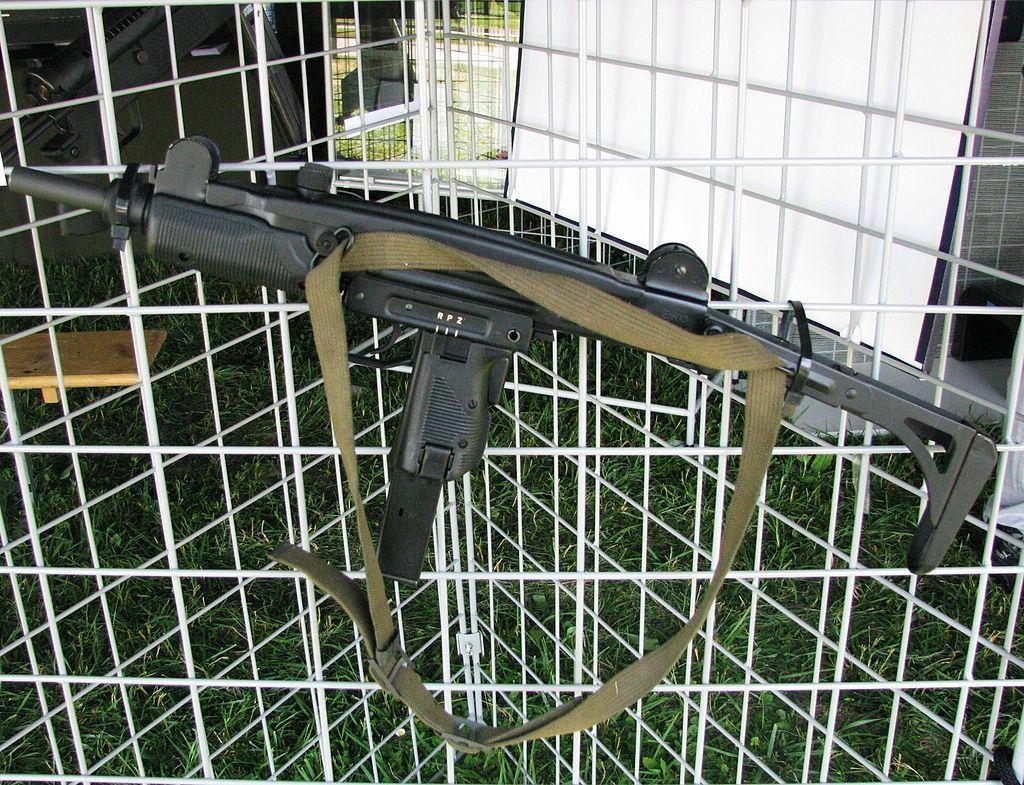
Regarding automatic rifles, systems from the national Zastava Arms producer are used, such as models M70 AB1 with a fixed wooden and M70AB2 with a folding stock, both in 7.62x39mm Eastern caliber. These rifles, modeled on the Kalashnikov system, are primarily used for candidate and operator selection, training, and tasks in rural environments. The East German AK-47, which allows a 40mm under-barrel grenade launcher mount when needed, is also used in the same caliber. The detachment was equipped with a contingent of compact Heckler & Koch G36 Commando in 5.56mm, thanks to the efforts of a group of experienced special forces operators from the former Serbian Armed Forces Special Brigade’s Counter Terrorist Battalion SOKOLOVI.
The capacities of the detachment have been significantly enhanced by equipping elite Serbian Armed Forces units according to the “1500” Project. The detachment has been armed with a contingent of Belgian FN SCAR-L rifles in CQC model with a shortened barrel and the STD versions with a standard-length barrel, both chambered in 5.56mm NATO, thanks to the unit’s command and officials at the Ministry of Defense.

The Military Police Special Operation Detachment KOBRE has a diverse arsenal of firearms and tactical accessories that can be modified to meet the needs of specific tasks and shooters. The detachment uses Aimpoint CompM4 red dot sights, EOTech XPS2-0 holographic sights, and Elcan Specter DR 1-4× devices to modify automatic rifles and SMGs. Assault handgrips, C clamp accessories, tactical lights, and other tactical accessories can be mounted on the standard Picatinny rails or special carriers for the same purpose.
For close-quarters combat, the detachment uses high-end tactical shotguns from Italian Benelli Armi SpA, such as the M3 Tactical and M4 Tactical models in 12/70 caliber. In terms of precision rifles, the detachment has semi-auto Zastava M76 rifles in 7.92×57 mm caliber Mauser available, produced by Zastava Arms, fitted with the Zrak M76 4×5˚10 optics. The detachment’s marksmen also use the Finnish Sako TRG 42 bolt action models in .338 Lapua Magnum, configured with the Schmidt & Bender Police Marksman II optics, for effective targeting at 1000-1500 meter distances. They use the long-range M93 Black Arrow bolt action 12.7×108 mm Zastava Arms rifles to engage targets behind covers or light-armored ones at longer distances.
Regarding fire-support systems, the detachment holds FN Minimi MK3 5.56 mm light machine guns with a telescopic stock and Zastava M84 systems in 7.62×54 R. The same producer also provides the reliable Zastava M93 30 mm automatic grenade launchers.
The detachment wears two-piece black tactical uniforms, as well as overalls in rural camos M01, M02, and M03, produced by Mile Dragic, and two-piece uniforms and overalls in the M10 rural camo, made by national producer Yumco ad, which is the standard camo of the Serbian Armed Forces. In 2018, the monochrome tactical uniform Cobra Tactical was developed for the KOBRE, manufactured by Yumco ad. The olive-gray set for special forces operators consists of tactical pants, a field shirt, two polo t-shirts, two cotton t-shirts, a summer combat shirt, a winter combat shirt, a soft shell jacket, and a winter jacket. To blend with the environment, the detachment’s marksmen use ghillie suits produced by Mile Dragić.
Tactical vests or body armor are worn over the uniforms and overalls, with the latter mainly in a plate carrier design to meet mobility needs. Black models are manufactured by Horned Ltd from the city of Novi Sad, and models delivered by Yumco ad in both plate carrier and body armor versions, also in black. Several manufacturers, including Mile Dragić, Yumco ad, and SOD, have provided tactical belts in use, mostly in black. When conducting VIP close protection tasks, special protective ballistic suitcases with armor panels installed are used for ballistic protection. The suitcases commonly have three IIIA armor panels installed. The detachment uses black Haix Black Eagle Tactical 20 High boots, with a significant contingent of high-end and attractive LOWA Zephyr GTX MID TF military boots delivered in black and sage color by Horus Ltd.
In 2019, Yumco ad delivered second-generation high-cut helmets in black with helmet covers to provide ballistic head protection for operators during training activities like parachuting or climbing. The helmets, namely JOBE and MICH 2002, feature tactical rails and a shroud to safeguard against mechanical traumas and fragments.
Operators also utilize Revision Military Wolfspider, Bullet Ant Tactical, and Sawfly Military tactical goggles for eye protection during training activities.
Multi-purpose binoculars JIM UC and Moskito day-night laser rangefinders, both systems acquired from Safran Electronix & Defense, are available for specific activities.
Reliable foreign manufacturers such as BLACKHAWK!, 5.11, Pentagon, and Mechanix provide tactical gloves and knee and elbow pads. Operators have the flexibility to purchase their preferred models from these manufacturers.
Specialist gear, including detectors and bomb suits, has been procured from reputable foreign manufacturers for the needs of the Counter-diversion Protection Team. The K9 Team employs Labrador, Retriever, and German Shepherd breeds.
Mercedes-Benz G-500 off-road vehicles are used for personnel transport in urban areas. At the same time, luxurious Audi, Mercedez-Benz, and other models tailored to the unit’s requirements are available for VIP transport and escort. Tactical communication is accomplished with a range of Motorola systems.
Cooperation
The Military Police Special Operations Detachment KOBRE operators engage in joint tactical exercises and security seminars with both domestic and foreign units, as they are an essential aspect of their professional development. These exercises and seminars enable the detachment to maintain a strong partnership with various units within the Serbian Armed Forces, such as the elite 72nd Special Operations Brigade and 63rd Parachute Brigade, as well as with the Special Anti-Terrorist Unit and the VIP and Facilities Protection Unit of the Serbian Ministry of Internal Affairs. These joint exercises, seminars, sports events, and competitions provide an opportunity to evaluate the training and operability of the units and enhance their joint response to security threats.
In 2009, the Serbian Ministry of Defense, the Military Police Department, and the KOBRE command collaborated to organize a two-week joint training program for Serbian and French elite units. The participants included French GIGN operators and, on the Serbian side, KOBRE operators, police special forces operators, the then Counter Terrorist Unit, Special Anti-Terrorist Unit, and the Protection Department of the Ministry of Internal Affairs. The primary focus of the training was the exchange of experience in VIP close protection and counter-terrorist actions. Consequently, the KOBRE collaborated with the French RAID the same year.
The KOBRE and GIGN units continued their partnership in 2010, with the GIGN operators being guests of the KOBRE. This event was another testament to the exceptional collaboration and amicable relations between the two units.
Moreover, the KOBRE conducted training with Israeli units on various occasions. In 2013, a group of operators completed the two-week specialist Close Protection course organized in Israel. This training enabled the operators to enhance their skills in close protection, which is a critical aspect of their duties.


